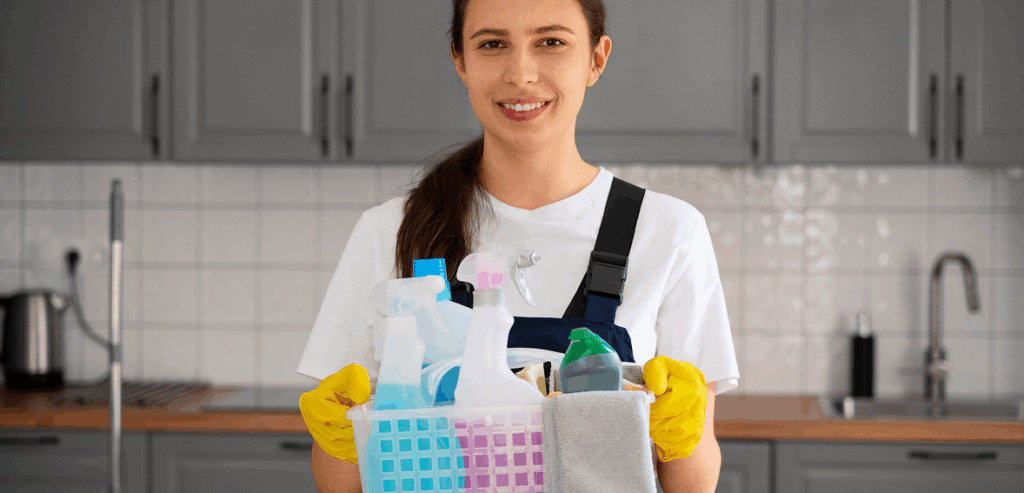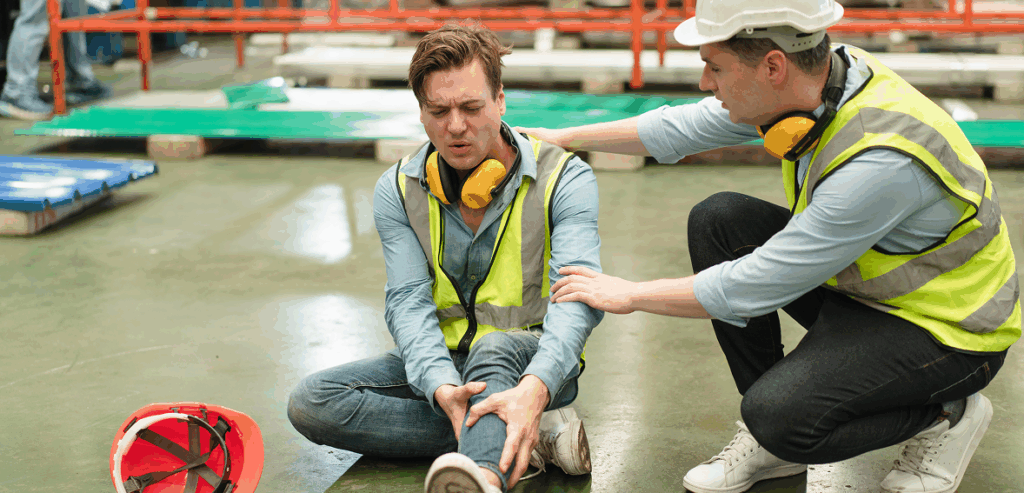
By Marie Gaynor August 27, 2025
Daycares play a crucial role in supporting working families by ensuring children are safe, healthy, and nurtured in a structured environment. Parents entrust caregivers with their most valuable responsibility, making it essential that every daycare adopts strict health and safety policies. These policies are not just guidelines; they form the foundation for protecting children, staff, and the facility itself. Having well-defined procedures in place also builds trust with parents, ensures compliance with state regulations, and reduces the risk of accidents or emergencies.
Health and Hygiene Standards

Maintaining high standards of health and hygiene in a daycare is non-negotiable. Young children are more vulnerable to infections, and in shared spaces, illnesses can spread rapidly. A comprehensive hygiene policy should cover frequent handwashing practices, regular cleaning of toys and surfaces, and sanitization of restrooms, kitchens, and play areas. Staff should also be trained to model these practices, encouraging children to adopt healthy habits like washing hands before meals and after outdoor play.
The policy must outline protocols for diaper changing, safe food handling, and waste disposal. Clear procedures for sanitizing items that frequently come into contact with children, such as mats, utensils, and bedding, should be established. Parents should also be informed about expectations, such as keeping children at home when they are ill, to protect the larger daycare community. By implementing strict hygiene rules, daycares can prevent the spread of common infections and create a healthier learning environment.
Emergency Preparedness Plan
Emergencies can occur without warning, making it essential for every daycare to have a detailed preparedness plan. Whether it is a fire, natural disaster, or medical crisis, caregivers must know exactly how to respond. A written emergency policy should include evacuation routes, designated meeting points, and clear responsibilities for staff members during such events. Fire drills, lockdown practices, and first aid simulations should be conducted regularly so both staff and children are familiar with procedures.
Communication is another critical aspect of emergency preparedness. Parents should be immediately notified in case of emergencies, and the daycare must maintain updated contact lists. Policies should also ensure that essential supplies like first aid kits, fire extinguishers, flashlights, and emergency food and water are available and accessible at all times. A proactive emergency plan minimizes confusion and ensures that safety is prioritized when every second counts.
Child Illness and Medication Policy

Children often experience minor illnesses, but daycares need clear policies to manage these situations fairly and safely. A child illness policy should define symptoms that require children to stay at home, such as fever, vomiting, or contagious infections. This reduces the risk of illness spreading among children and staff. Caregivers should also be trained to recognize signs of illness and respond promptly by isolating the child and contacting parents.
When it comes to medication, strict rules should be enforced. Only prescribed medicines with clear instructions should be administered, and written consent from parents must always be obtained. Staff should log every dose given, ensuring accountability and preventing accidental overdoses. Over-the-counter medications should be handled with the same level of care. By implementing structured illness and medication policies, daycares protect both the well-being of children and the peace of mind of parents.
Nutrition and Food Safety
Nutrition plays a vital role in a child’s development, and daycares have a responsibility to provide safe, balanced meals and snacks. A food policy should ensure that all meals meet basic dietary guidelines and take into account allergies and cultural or religious restrictions. Parents should be informed about what their children are being served, and transparency in food preparation practices is essential.
Food safety measures must be clearly outlined, covering aspects like proper storage, labeling, and preparation of meals. Perishable items should always be refrigerated at safe temperatures, and cross-contamination between raw and cooked foods must be avoided. Staff handling food should undergo training in safe food practices, and kitchens must be regularly inspected for compliance. A strong nutrition and food safety policy not only supports children’s health but also builds trust with families who depend on daycares to provide meals that are both safe and nourishing.

Safe Play and Equipment Use
Play is central to a child’s learning and development, but it also carries risks if not properly managed. Daycares must adopt strict policies around safe play and equipment use to prevent injuries. This includes ensuring that indoor and outdoor play areas are free from hazards such as sharp objects, broken toys, or unsafe surfaces. Equipment like swings, slides, and climbing structures should meet safety standards and be regularly inspected for wear and tear.
Staff supervision is equally critical. Policies should mandate proper staff-to-child ratios so children are always monitored during playtime. Age-appropriate play areas should be designated to reduce risks, with younger children separated from older ones when necessary. The policy must also emphasize the importance of teaching children safe play habits, such as waiting their turn or using toys correctly. With consistent enforcement of these rules, daycares can provide children with safe spaces to explore and enjoy themselves.
Staff Training and Qualifications
The quality of daycare services heavily depends on the knowledge and training of staff members. A robust staff training and qualification policy ensures that caregivers are well-prepared to handle the diverse needs of children while maintaining a safe environment. This includes requirements for basic certifications such as CPR and first aid, along with ongoing professional development in child safety, behavior management, and emergency response.
Background checks and reference verification should be mandatory before hiring to ensure that staff members are trustworthy and qualified. Training should also include topics such as recognizing signs of abuse or neglect, maintaining confidentiality, and adhering to daycare health protocols. By setting clear expectations for staff qualifications and ensuring continuous training, daycares not only comply with legal standards but also provide parents with confidence that their children are in safe and capable hands.
Cleaning and Sanitation Schedules

Daycares must have a cleaning and sanitation policy that goes beyond general housekeeping. A structured schedule should dictate how often different areas of the facility are cleaned and what disinfectants should be used. For example, bathrooms may require multiple cleanings throughout the day, while toys and learning materials may need weekly deep cleaning. Carpets, mats, and furniture should also be regularly maintained to prevent the accumulation of dust and germs.
The policy should also include responsibilities, ensuring that all staff members understand their role in maintaining a clean environment. Record-keeping can help track sanitation efforts and ensure compliance with health regulations. Parents should feel reassured knowing that the daycare follows a consistent cleaning schedule that prioritizes their children’s health. A transparent sanitation policy fosters trust while reducing the likelihood of outbreaks and accidents caused by unsanitary conditions.
Visitor and Pickup Policy
Children’s safety can be compromised without strict control over who enters the daycare and who is authorized to pick up a child. A visitor and pickup policy should require that all visitors sign in and present identification. Unauthorized individuals should not be allowed inside the facility, and security measures such as locked entrances and surveillance cameras can enhance safety.
Pickup policies must be equally strict. Only parents or authorized guardians listed on approved forms should be allowed to collect children. Identification checks should be performed regularly to prevent mistakes or unauthorized pickups. Communication between staff and parents is key, especially if there are custody arrangements or other sensitive family situations. A clear policy around visitors and pickups ensures that children are only released to trusted individuals and that the daycare remains a secure space at all times.
Accident and Injury Response

Despite best efforts, accidents can still happen in daycares. A strong policy on accident and injury response ensures that incidents are handled quickly and correctly. This includes requiring staff to provide immediate first aid, contact emergency services if needed, and notify parents without delay. Detailed incident reports should be completed for every injury, documenting what happened, who was involved, and what action was taken.
The policy should also emphasize preventive measures. Regular inspections of play areas, staff vigilance during active times, and quick responses to hazards reduce the likelihood of accidents. Parents should feel confident that if their child gets hurt, the daycare has a professional and transparent process to manage the situation. Proper documentation also protects the daycare legally and provides insights into patterns that may require policy adjustments in the future.
Communication and Reporting Procedures
Open communication between daycare staff and parents is vital to maintaining a safe and supportive environment. A communication policy should ensure that parents are promptly informed about incidents, illnesses, or policy changes. This can include daily reports, newsletters, or direct phone calls when necessary. Parents should always feel that they are part of the loop regarding their child’s care.
Reporting procedures should also cover how staff members escalate concerns within the daycare. Whether it is a safety hazard, a behavioral issue, or a suspected case of abuse, clear reporting channels must be in place. Whistleblower protections for staff can encourage openness and accountability. Strong communication and reporting policies not only support transparency but also foster a culture of trust and cooperation between daycares, parents, and regulatory authorities.
Allergy Management and Special Health Needs
Daycares must be prepared to handle allergies and special health requirements among children. A strong allergy management policy includes collecting detailed medical information from parents before enrollment and updating it regularly. Staff should be trained to recognize signs of allergic reactions and know how to administer medication such as epinephrine if prescribed. Food allergies, in particular, require extra precautions, including strict labeling of meals, safe storage of snacks, and avoiding cross-contamination in food preparation. Parents should be kept informed of the daycare’s allergy protocols and reassured that their child’s health needs are being carefully monitored.
For children with other special health conditions, such as asthma or diabetes, daycares must have individualized care plans in place. These plans should clearly outline how staff should respond in routine situations as well as emergencies. Training should extend to all caregivers so that no child’s care is dependent on a single staff member. Open communication with families ensures consistency between home and daycare management of the child’s condition. With careful planning, daycares can provide an inclusive environment where children with allergies or special needs are safe, supported, and able to participate fully in daily activities.
Safe Sleep Practices
Sleep policies are especially important for infants and toddlers in daycare environments. Safe sleep guidelines should strictly follow pediatric health recommendations to prevent risks such as suffocation or sudden infant death syndrome. Infants should always be placed on their backs to sleep, using firm mattresses without pillows, blankets, or stuffed animals. Cribs should meet national safety standards, and they must be inspected regularly for damage or hazards.
Staff must be trained to monitor sleeping children consistently and ensure that sleep environments remain safe throughout the day. Policies should also address appropriate nap schedules, balancing rest with activity to support children’s development. Communication with parents is essential so that sleep routines at home and in daycare remain consistent, reducing stress for children. Safe sleep practices not only protect physical health but also contribute to emotional well-being, ensuring children feel secure in their daily routine. By making sleep safety a priority, daycares can demonstrate their commitment to the highest level of care for their youngest attendees.
Transportation Safety Policy
Many daycares provide transportation to and from their facilities, which requires strict safety measures. A transportation safety policy should ensure that all vehicles meet licensing and inspection requirements, with seat belts and child restraints that comply with safety laws. Drivers must be fully vetted with background checks, proper licensing, and specialized training in child passenger safety. Daily pre-trip inspections of vehicles should be conducted to verify that brakes, tires, and emergency equipment are in working order.
Loading and unloading procedures are critical to safety. Staff should supervise children closely as they enter or exit vehicles, ensuring that no child is left behind. Attendance logs should be checked at both pick-up and drop-off points to confirm accountability. Parents must be informed of transportation policies, including schedules and expectations for punctuality, to maintain a reliable system. A clear communication process should also exist in case of delays or emergencies on the road. By enforcing strict transportation policies, daycares can give families confidence that their children are safe not only within the daycare but also during their journey to and from the facility.
Behavior Guidance and Discipline Policy
Daycares must establish clear policies on behavior guidance and discipline to create a safe and respectful environment. A well-structured discipline policy should focus on positive reinforcement, teaching children appropriate behavior through encouragement rather than punishment. Staff should be trained to manage conflicts calmly and constructively, helping children understand the consequences of their actions in a supportive way. Physical punishment or harsh discipline must be strictly prohibited, and alternative strategies such as redirection, problem-solving discussions, or time-outs should be outlined.
Consistency is essential, both among staff members and between the daycare and parents. Families should be informed of the daycare’s discipline approach during enrollment so expectations are clear. This shared understanding reduces confusion and ensures that children experience consistent boundaries across home and daycare. Policies should also emphasize respect for each child’s individuality, recognizing that different children may require different approaches to guidance. By fostering a nurturing yet structured environment, daycares can encourage positive behavior, build children’s social skills, and maintain a safe atmosphere for everyone.
Conclusion
Health and safety policies are the backbone of a reliable daycare system. From hygiene standards and emergency preparedness to accident response and communication, each policy plays a role in creating a safe environment for children to grow and learn. Parents rely on daycares not only for supervision but also for nurturing their children’s well-being, and that trust must be honored with consistent and transparent practices. By implementing these ten essential policies, daycare centers demonstrate their commitment to children’s safety while providing parents with peace of mind. These policies also establish accountability, ensure compliance with regulations, and foster an environment where children can thrive without unnecessary risks. Ultimately, a daycare that prioritizes health and safety builds a foundation of trust, security, and care that benefits families, staff, and children alike.